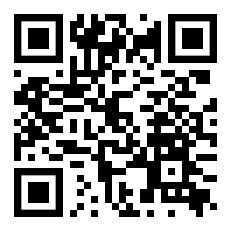US stock indices hit all-time highs. PBoC left key lending rates unchanged
Stocks rose to record highs on Friday on optimism about the US economic outlook. According to the University of Michigan, inflation expectations in the US fell this month, bolstering hopes that the Fed could provide a soft landing for the economy. In addition, Friday’s rally in chip stocks is also boosting tech stocks and the broader market after Taiwan Semiconductor Manufacturing Co gave an upbeat outlook for this year, bolstering hopes for a rebound in chip sales.
Weakening political risks supported stocks after Congress passed a resolution late Thursday night to keep the government running through March and avoid a shutdown on Saturday. The temporary measure would fund some US agencies through March 1 and others through March 8.
Shares of iRobot fell by more than 25% after Bloomberg reported that the European Union’s antitrust authority intends to block the company’s planned acquisition of Amazon.com.
Over the past week, expectations of an ECB interest rate cut have weakened. In the swap market, the probability of an ECB rate cut at the March meeting has fallen to 16% from over 50% at the beginning of the month. Swaps currently estimate the odds of a 25 bps ECB rate cut at 3% at the next meeting on January 25 and 16% at the next meeting on March 7. The first-rate cut is now expected in April. Germany’s producer price index for December fell more than expected, which is dovish for ECB policy.
In December, UK retailers suffered their biggest drop in sales in nearly three years, raising the risk that the economy slipped into recession late last year. UK retail sales in December 2023 fell by 2.4% compared to the same month in 2022, driven by a marked decline in sales. This was the largest monthly fall since January 2021.
Crude oil and gasoline prices declined moderately on Friday. Expectations that global oil supplies will remain ample despite geopolitical risks in the Middle East are weighing on crude oil prices. But against the backdrop of OPEC+ production cuts, as well as periodic escalation of the conflict in the Red Sea, traders should not expect a significant decline in prices for black gold in the coming weeks.
Asian markets traded mixed last week. Japanese Nikkei 225 (JP225) jumped by 0.92%, Chinese FTSE China A50 (CHA50) remained unchanged in price for five trading days, Hong Kong Hang Seng (HK50) fell by 0.54% for the week, and Australian ASX 200 (AU200) gained 1.02%.
On Monday, the People’s Bank of China (PBoC) kept key lending rates unchanged amid downward pressure on the yuan, disappointing investors expecting stimulus measures. Last week, the People’s Bank of China surprised markets by leaving the medium-term lending rate unchanged. Chinese markets continued to decline amid lingering concerns about a slowing economic recovery.
S&P 500 (US500) 4,839.81 +58.87 (+1.23%)
Dow Jones (US30) 37,863.80 +395.19 (+1.05%)
DAX (DE40) 16,555.13 −12.22 (−0.07%)
FTSE 100 (UK100) 7,461.93 +2.84 (+0.04%)
USD Index 103.24 −0.30 (−0.29%)
News feed for: 2024.01.22
- China PBoC Loan Prime Rate (m/m) at 03:15 (GMT+2).
This article reflects a personal opinion and should not be interpreted as an investment advice, and/or offer, and/or a persistent request for carrying out financial transactions, and/or a guarantee, and/or a forecast of future events.
